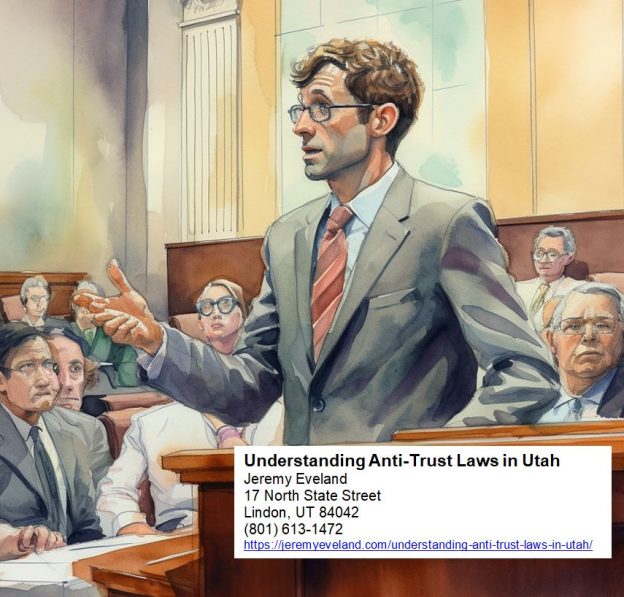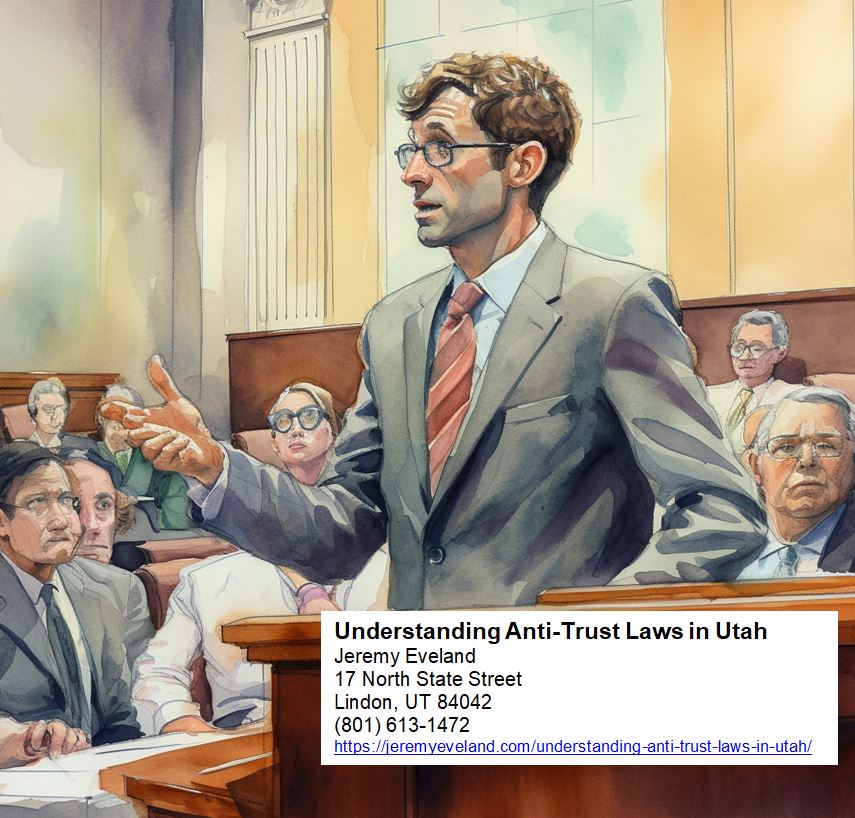In today’s digital age, social media has become an integral part of our lives, playing a significant role in communication, information sharing, and networking. However, for government agencies, navigating the complex landscape of social media can be a daunting task, especially when it comes to compliance. Ensuring that government agencies adhere to the necessary regulations and guidelines while effectively utilizing social media platforms is not only essential for maintaining transparency, but it also plays a critical role in building public trust. In this article, we will explore the intricacies of social media claims compliance for government agencies, shedding light on its importance, challenges, and best practices. By the end, you will have a comprehensive understanding of how government agencies can navigate the social media terrain while remaining compliant and building strong relationships with their constituents.
Understanding Social Media Claims Compliance
Introduction to Social Media Claims Compliance
Social media has become an integral part of our daily lives, transforming the way we communicate, interact, and conduct business. For government agencies, leveraging social media platforms effectively can help reach and engage with their target audience, disseminate information, and enhance public services. However, with the benefits of social media also come responsibilities and legal obligations. Ensuring compliance with social media claims regulations is crucial for government agencies to maintain trust, credibility, and transparency in their online presence.
Importance of Social Media Claims Compliance for Government Agencies
Government agencies hold a unique position of authority and are held to higher standards when it comes to public communications. Being compliant with social media claims regulations is not only important for legal and regulatory reasons, but also to preserve the reputation of government agencies. Non-compliance can lead to serious consequences, including legal penalties, reputational damage, loss of public trust, and compromised privacy and security. By adhering to social media claims compliance, government agencies demonstrate a commitment to accountability, transparency, and ethical conduct, fostering public confidence in their operations.
Complying with Legal and Regulatory Requirements
Legal Framework for Government Agencies on Social Media
Government agencies must adhere to a complex legal framework when utilizing social media platforms. Various laws and regulations, such as the Freedom of Information Act (FOIA), the Federal Records Act (FRA), and the Hatch Act, govern the creation, management, and dissemination of content on social media platforms. Adhering to these legal requirements is essential for government agencies to ensure compliance with information security, record management, and transparency obligations.
Regulatory Bodies and Guidelines
In addition to legal requirements, government agencies must also follow guidelines established by regulatory bodies. These bodies, such as the Federal Trade Commission (FTC) and the Federal Communications Commission (FCC), provide specific guidance on advertising, endorsements, disclosures, and privacy regulations applicable to social media claims. Staying informed about these guidelines is crucial for government agencies to ensure compliance and avoid potential legal pitfalls.
Digital Records Management
Government agencies must maintain accurate and complete records of their social media activities. This includes capturing, retaining, and archiving all relevant content, communications, and interactions. Implementing robust digital records management systems is essential to meet legal and regulatory requirements, facilitate information retrieval, and enable transparency and accountability.
Disclosure and Transparency
Government agencies must adhere to principles of disclosure and transparency in their social media communications. Clear and accurate disclosures should be made about the nature of the agency’s involvement in social media platforms, the purpose and objectives of their social media presence, and any potential conflicts of interest. Providing transparent information enhances public trust and ensures compliance with legal and ethical obligations.
Data Protection and Privacy
Protecting personal information and ensuring privacy are critical aspects of social media claims compliance. Government agencies must have robust data protection policies in place to safeguard sensitive information shared on social media platforms. Measures such as secure account settings, encryption, access controls, and regular audits can help mitigate privacy risks and comply with data protection regulations.

Developing Effective Social Media Policies
Establishing Clear Objectives
When developing social media policies, government agencies should clearly define their objectives and intended outcomes. These objectives may include promoting transparency, providing accurate information, engaging with the public, supporting public service initiatives, and ensuring compliance with legal and regulatory requirements. By setting clear objectives, government agencies can align their social media strategies with their broader organizational goals and ensure that their policies are effective and focused.
Defining Roles and Responsibilities
Clear delineation of roles and responsibilities is essential for effective social media claims compliance. Government agencies should establish specific roles for overseeing social media activities, including content creation, review, approval, and community management. Assigning accountability helps ensure that all aspects of social media compliance are adequately addressed and that the right individuals are responsible for implementing policies and procedures.
Creating Content Standards
Creating content standards is a vital part of social media claims compliance. Government agencies should establish guidelines on tone, language, accuracy, and appropriateness of content, ensuring alignment with their mission and core values. Content standards should also address legal and regulatory requirements related to advertising, endorsements, disclosures, privacy, and data protection.
Ensuring Confidentiality and Security
Government agencies must prioritize confidentiality and security when using social media platforms. Access controls, secure authentication, and measures to prevent unauthorized access should be implemented to protect sensitive information. Regular audits and risk assessments can help identify potential vulnerabilities and proactively address security concerns.
Implementing Monitoring and Reporting Processes
Establishing monitoring and reporting processes is essential to maintain social media claims compliance. Government agencies should implement tools and protocols to monitor social media activities, identify potential compliance issues, and promptly address them. Reporting mechanisms should be in place to document compliance efforts, flag non-compliant content, and track corrective actions taken.
Managing Social Media Accounts
Account Creation and Authorization Protocols
Government agencies should establish strict protocols for creating and authorizing social media accounts. These protocols should include processes for verifying official agency accounts, ensuring only authorized personnel have administrative access, and maintaining accurate inventories of official accounts. By controlling account creation and authorization, government agencies can mitigate the risk of unauthorized entities impersonating their brand or disseminating inaccurate information.
Content Approval and Review Procedures
Government agencies should implement rigorous content approval and review procedures to ensure compliance with legal, regulatory, and internal standards. Content should be subjected to a comprehensive review process, involving legal and communications professionals, before being published on social media platforms. This helps mitigate the risk of non-compliant or misleading content being disseminated to the public.
Handling Comments, Messages, and Inquiries
Government agencies should establish protocols for handling comments, messages, and inquiries received through social media platforms. Prompt and accurate responses should be provided, addressing concerns or inquiries within the agency’s purview. Clear guidelines should be in place to handle negative or controversial comments, ensuring a professional and respectful response while complying with legal and regulatory requirements.
Dealing with Negative or Controversial Content
Managing negative or controversial content is a challenge that government agencies may face on social media platforms. It is essential to have policies and procedures in place to address such content promptly and appropriately. This may involve assessing the severity of the issue, consulting legal counsel if necessary, and responding in a manner that upholds the agency’s reputation while complying with legal and ethical obligations.
Managing Third-Party Content and Collaborations
Government agencies should exercise caution when dealing with third-party content and collaborations on social media platforms. Clear guidelines should be established to ensure compliance with copyright laws, intellectual property rights, and permissions for sharing third-party content. Collaborations with external entities should be aligned with the agency’s objectives, mission, and values, and conducted in a manner that ensures compliance with legal and regulatory requirements.
Ensuring Compliance with Advertising Laws
Prohibited Advertising Practices
Government agencies must be aware of prohibited advertising practices to ensure compliance with relevant laws and regulations. These practices may include false or misleading advertising, deceptive endorsements, unfair competition, or advertising targeted at vulnerable populations. It is essential to understand the legal requirements governing advertising and to avoid engaging in practices that could result in legal consequences.
Clear and Accurate Advertising
Ensuring clear and accurate advertising is a fundamental aspect of social media claims compliance. Government agencies should provide truthful and accurate information in their advertisements, avoiding exaggerated or misleading claims. Advertisements should be reviewed carefully to ensure compliance with legal and regulatory requirements, including guidelines related to disclosures, endorsements, and consumer protection.
Promotional Disclosures and Disclaimers
Government agencies must incorporate appropriate disclosures and disclaimers in their social media advertising. These disclosures should be clear, conspicuous, and prominently displayed, ensuring that the audience can easily understand any material connections or affiliations. By providing accurate and transparent information, government agencies can enhance consumer trust and avoid regulatory penalties.
Special Considerations for Influencer Marketing
Government agencies engaging in influencer marketing must exercise caution to ensure compliance with advertising laws and regulations. Guidelines related to endorsements, disclosures, and transparency apply to influencer marketing on social media. Clear contracts, guidelines, and monitoring procedures should be in place when collaborating with influencers to safeguard the agency’s reputation and ensure compliance with legal and regulatory requirements.
Monitoring and Enforcement Strategies
Implementing Social Media Monitoring Tools
Government agencies should employ social media monitoring tools to detect potential non-compliance and promptly address any issues. These tools can help monitor content, track engagement, and identify areas of concern. By proactively monitoring social media platforms, government agencies can mitigate risks, protect their reputation, and ensure compliance with applicable laws and regulations.
Detecting and Addressing Non-Compliance
Detecting and addressing non-compliant social media content is essential for government agencies. Regular monitoring should be complemented by robust reporting mechanisms that enable employees to report non-compliant content or behavior. Procedures should be in place to investigate reports, address violations promptly, and take appropriate enforcement actions. Transparency and consistency in enforcing compliance measures are crucial to maintain public trust.
Internal Audits and Reviews
Internal audits and reviews play a vital role in assessing social media claims compliance within government agencies. Regular audits should be conducted to evaluate the effectiveness of policies, procedures, and controls. Audits help identify gaps in compliance, ensure adherence to standards, and provide opportunities for continuous improvement. By conducting comprehensive internal reviews, government agencies can proactively address any compliance shortcomings and maintain a robust compliance program.
Enforcement and Corrective Actions
Government agencies should have a clearly defined and transparent process for enforcing compliance and taking corrective actions. Violations should be addressed promptly and consistently, following established procedures and protocols. Corrective actions may range from removing non-compliant content, issuing warnings, imposing fines, or implementing educational or disciplinary measures. By enforcing compliance measures effectively, government agencies demonstrate their commitment to upholding standards and maintaining public trust.
Training and Education Programs
Training and education play a crucial role in fostering social media claims compliance within government agencies. Regular training programs should be provided to employees involved in social media activities, including content creators, reviewers, and community managers. These programs should cover legal and regulatory requirements, agency policies and procedures, privacy and data protection, content standards, and other relevant topics. By equipping employees with the knowledge and skills necessary for compliance, government agencies can mitigate risks and promote a culture of compliance.

Addressing Concerns of Personal Social Media Use
Separating Personal and Professional Accounts
Government employees should be educated about the importance of separating personal and professional social media accounts to ensure compliance. Clear guidelines should be in place to discourage the mixing of personal and official content on social media platforms. Emphasizing the need for maintaining professional standards and avoiding conflicts of interest can help minimize the risk of non-compliance and reputational damage.
Guidelines for Employee Social Media Use
Government agencies should establish clear guidelines for employee social media use. These guidelines should address issues such as appropriate use of social media during work hours, avoiding disclosure of sensitive or confidential information, representing the agency accurately, and adherence to legal and regulatory requirements. By providing employees with clear guidance, government agencies can minimize the risks associated with personal social media use.
Monitoring Employee Social Media Conduct
To ensure compliance and mitigate risks, government agencies should have mechanisms in place to monitor employee social media conduct. These monitoring processes should respect privacy rights while maintaining the ability to identify and address potential compliance issues. By monitoring employee social media conduct, government agencies can take appropriate action when necessary, while promoting responsible usage and compliance with applicable laws and regulations.
Handling Employee Mistakes or Misconduct
Government agencies should have established procedures for handling employee mistakes or misconduct on social media platforms. Prompt investigation, appropriate disciplinary action, and educating employees about the consequences of non-compliant behavior are essential steps in addressing such occurrences. By addressing mistakes or misconduct appropriately, government agencies can reinforce their commitment to compliance and reinforce the importance of responsible social media use.
Employee Training and Education on Social Media Use
Training and education programs on social media use should also include employee-focused content. Employees should be educated on the risks associated with social media use, proper use of privacy settings, identifying and responding to phishing attempts, protecting sensitive information, and being mindful of the agency’s reputation. By providing comprehensive training, government agencies can empower employees to leverage social media platforms responsibly and in compliance with applicable laws and regulations.
Record Keeping and Archiving
Social Media Record Retention Policies
Government agencies must have clear record retention policies that cover social media content. These policies should outline what content needs to be retained, the duration of retention, and the medium in which records will be stored. Retaining social media records is crucial for compliance with legal and regulatory requirements, facilitating audits and reviews, and preserving institutional memory.
Archiving Social Media Content
Government agencies should establish effective archiving processes for social media content. Archiving helps ensure that records are preserved and can be retrieved when needed, even if the original content is no longer available on the social media platform. Cloud-based archiving solutions can assist government agencies in capturing, storing, and accessing social media records in a compliant and efficient manner.
Accessibility and Retrieval
To ensure compliance with legal and regulatory requirements, government agencies must prioritize the accessibility and retrieval of archived social media content. A robust search functionality and indexing system should be implemented to facilitate the retrieval of specific records or information. Additionally, appropriate security measures should be in place to protect the integrity and confidentiality of archived content.
Legal Holds and E-Discovery
In certain circumstances, government agencies may be required to place legal holds on social media content to preserve evidence related to ongoing litigation or investigations. Establishing protocols for issuing legal holds and responding to e-discovery requests is essential to ensure compliance with legal obligations. These protocols should include procedures for identifying, preserving, and producing relevant social media records within specified timeframes.

Examples of Social Media Claims Compliance Violations
Unauthorized Disclosure of Sensitive Information
Unauthorized disclosure of sensitive information on social media platforms is a serious violation of compliance requirements for government agencies. Such disclosures can compromise privacy, breach confidentiality obligations, and potentially expose individuals to harm or identity theft. Preventing unauthorized disclosures requires robust privacy controls, employee training, and clear policies governing the handling of sensitive information.
Failure to Remove Inappropriate or Offensive Content
Government agencies have a responsibility to remove inappropriate or offensive content from their social media platforms. Failure to promptly address such content can damage the agency’s reputation and violate legal and regulatory requirements related to decency and discrimination. Implementing content review processes, establishing clear guidelines, and ensuring responsiveness is crucial to maintaining compliance and public trust.
Misleading or False Advertising Claims
Making misleading or false advertising claims on social media is a violation of compliance requirements for government agencies. Such claims can deceive the public, erode trust, and potentially lead to legal consequences. Ensuring content accuracy, providing clear disclosures and disclaimers, and complying with advertising laws are essential steps in preventing misleading or false advertising claims.
Privacy Breaches and Data Security Incidents
Privacy breaches and data security incidents can occur when government agencies fail to implement appropriate safeguards on social media platforms. These incidents can result in unauthorized access to personal information, identity theft, or breaches of confidentiality. Protecting personal information, implementing secure access controls, and having robust data protection measures in place are vital to avoiding privacy breaches and maintaining compliance.
Frequently Asked Questions
What are the consequences of non-compliance with social media claims regulations?
Non-compliance with social media claims regulations can have severe consequences for government agencies. These consequences may include legal penalties, fines, reputational damage, loss of public trust, and compromised privacy and security. It is essential for government agencies to prioritize compliance with social media claims regulations to avoid these negative outcomes.
How can government agencies prevent unauthorized disclosure of sensitive information on social media?
To prevent unauthorized disclosure of sensitive information on social media, government agencies should implement robust privacy controls, including secure account settings, access controls, encryption, and regular employee training on handling sensitive information. Clear policies, procedures, and ongoing monitoring can also help mitigate the risk of unauthorized disclosures.
What is the role of social media content reviewers in compliance?
Social media content reviewers play a critical role in ensuring compliance with legal, regulatory, and content standards. They are responsible for reviewing and approving content before it is published on social media platforms. Content reviewers ensure accuracy, assess compliance with advertising and disclosure requirements, and prevent the dissemination of non-compliant or misleading content.
What types of social media posts require additional disclaimers or disclosures?
Social media posts that involve endorsements, advertising, or promotional content often require additional disclaimers or disclosures. Endorsements should be accompanied by clear disclosures of any material connection between the endorser and the government agency. Similarly, advertising and promotional posts should include appropriate disclosures to ensure transparency and compliance with advertising laws.
Are government agencies obligated to archive social media content?
Government agencies have an obligation to archive social media content in compliance with legal and regulatory requirements. Archiving ensures the preservation of records for audit, review, transparency, and evidentiary purposes. Implementing effective archiving processes, including record retention policies and secure storage, is essential for government agencies to meet their obligations and maintain compliance.

























